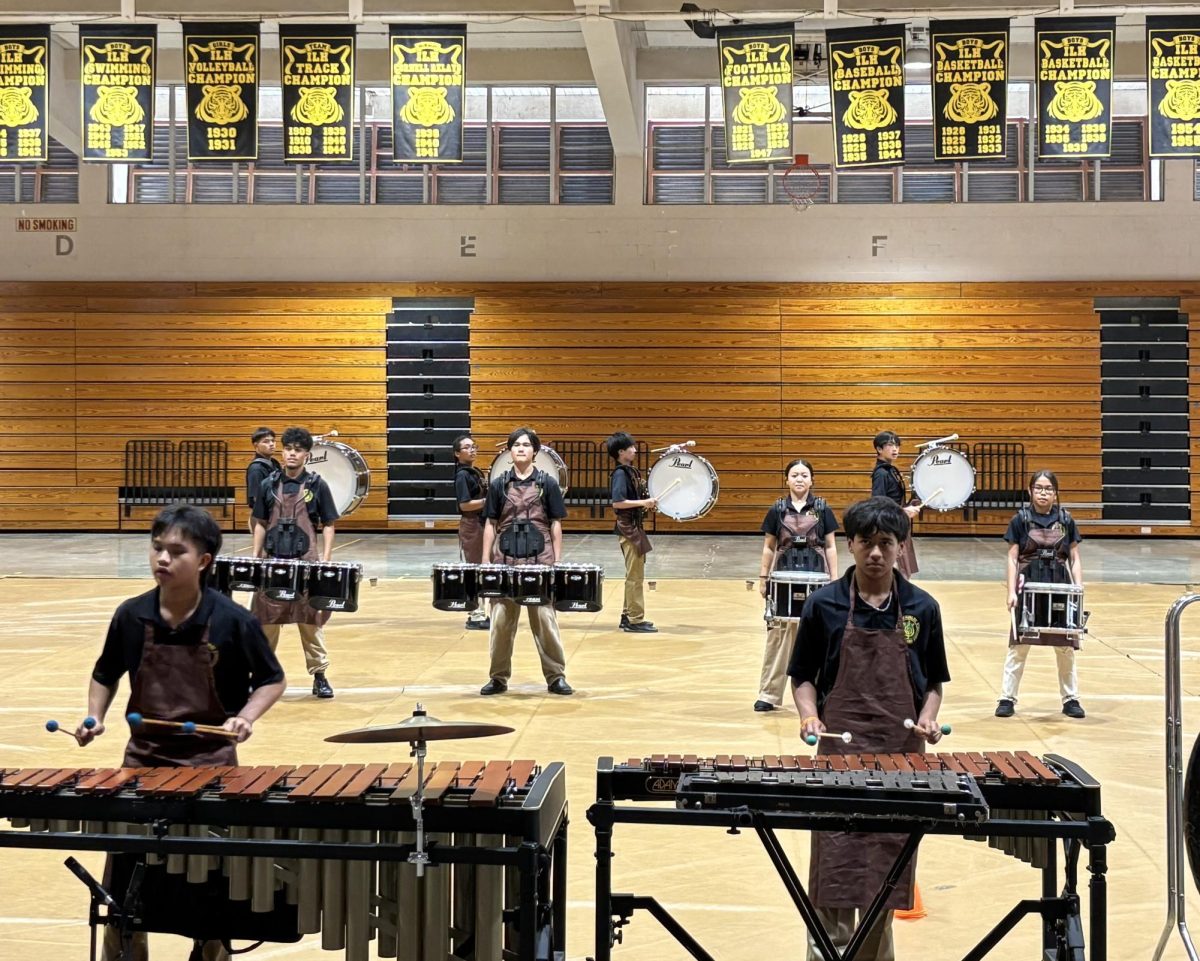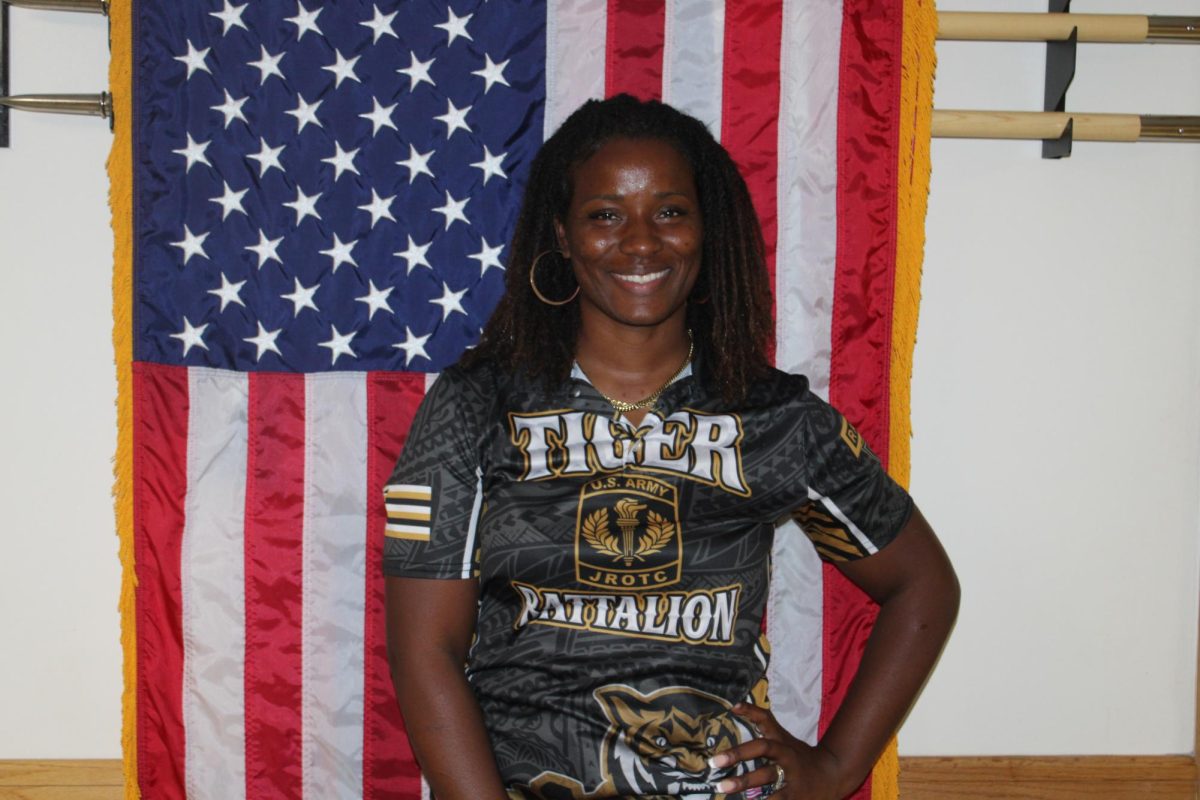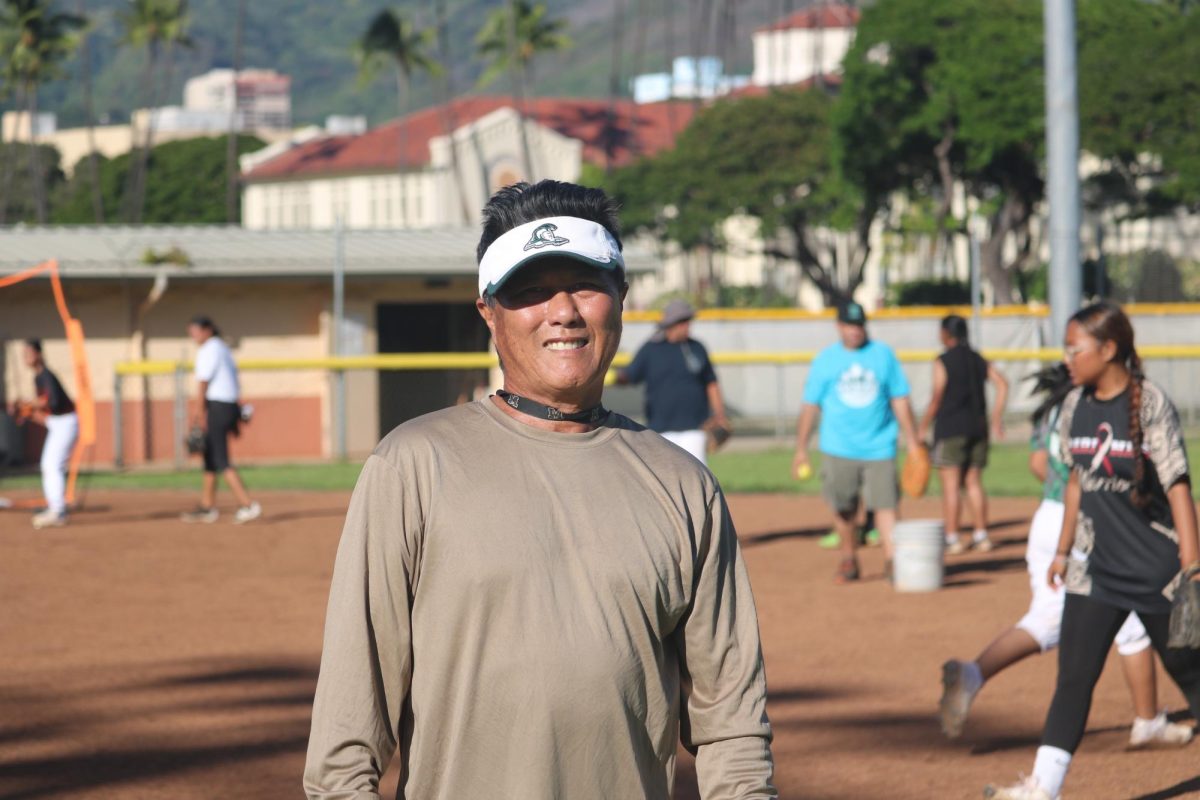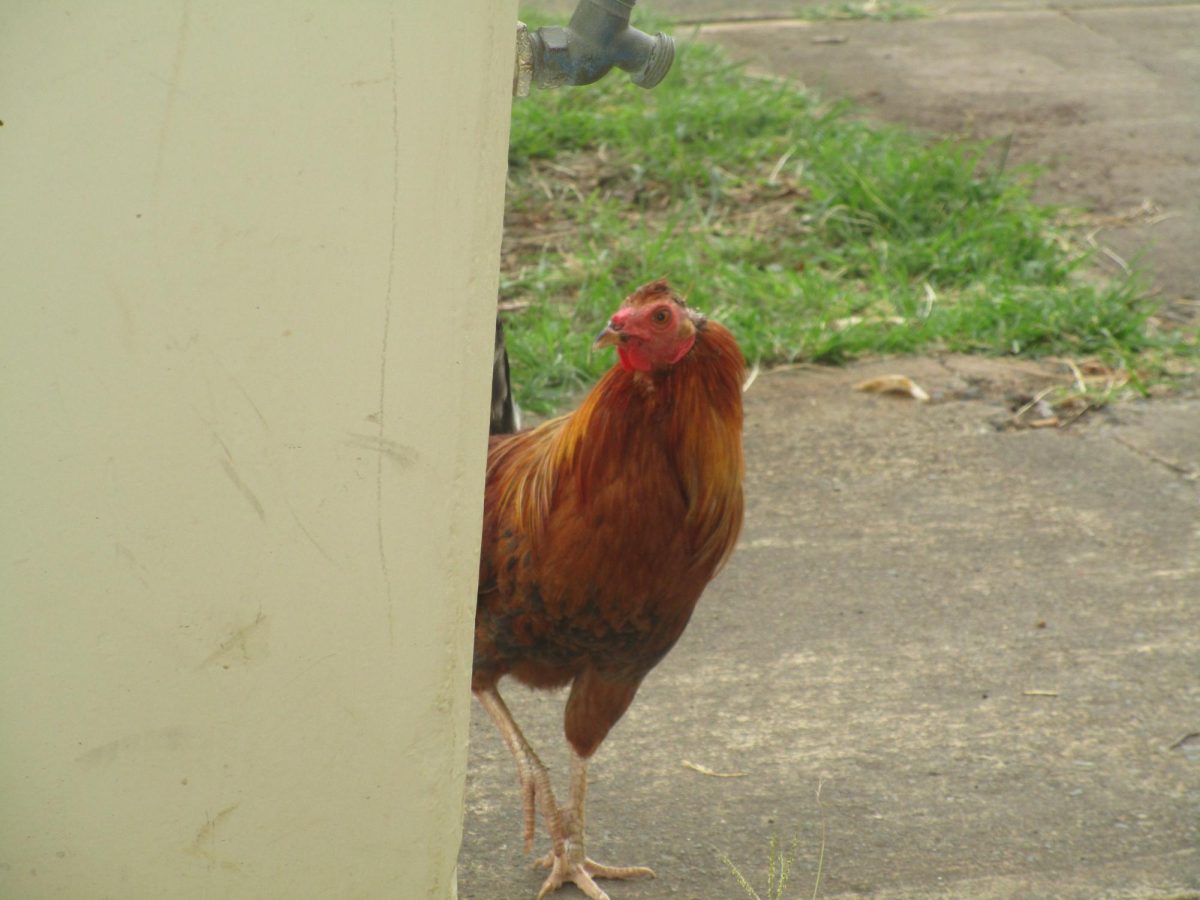After McKinley High School Band’s first competitive marching band season, they started a new tradition with the addition of an Indoor Percussion ensemble.
Indoor percussion is a variation of a marching band ensemble consisting of battery (marching band snare drums, bass drums, etc—they are the ones marching on the field) and a front ensemble (marimbas, xylophones, chimes, synthesizers, etc—-they are not marching on the field).
They had their first performance at their home show on April 6 and performed at the Hawai’i Invitational at the Kaiser High School Gym on April 17.
Their first show is titled “Rise and Grind” and centered around coffee. The show started off with the battery members pretending to sleep on the ground, wearing aprons. They wake up for the day before working a shift at a coffee house. Midway through the show, the members move sluggishly and zombie-like due to not having any coffee. Once they pretend to take a sip of coffee, they are energized again—jumping around happily.
The music involved dreamy melodic sequences through the front ensemble and rhythmic features from the snare and tenor drums; along with a vocal backing track saying, “coffee, coffee, coffee!”
Christian Madariaga is the indoor and marching band percussion director and technician. He is a graduate of McKinley High School (c/o 2015). Before directing at McKinley, he worked with Campbell High School.
“We wanted to find a show that was a little more fun, a little more cheesy…something that the parents would get and the kids would understand,” Madariaga said.
He said the goal for this new tradition at McKinley is to give the students more experiences. In addition, the students performing are able to play drums during their off-season from marching band, further building their skills.
There are also students whose main instruments are in the string orchestra and wind ensemble.
Madariaga said many of the students come to him for advice regarding balancing time for various rehearsals throughout the week. He said this was one of their biggest challenges in creating the show and working with the ensemble. Both the indoor percussion and winter guard had rehearsals every Wednesday, following up to their final shows.
Jadice Aki (c/o 2026) is a flute player, but joined the front ensemble and plays the vibraphone for indoor percussion. She said she had some familiarity with the instrument due to previously playing piano.
“Definitely a new experience to try a new instrument,” Aki said. “It’s definitely weird because I’m not breathing, it’s all in my arms.”
She said her favorite part of being in the ensemble was getting closer to her peers. In addition, she said this experience has taught her to manage her time better and be more disciplined as a musician.
During front ensemble rehearsals, the members had to memorize all of their scales on their instrument as well as learning how to pulse when playing—meaning, moving their body on the beat.
They rehearsed in the band room while the members of the battery rehearsed outside. They rehearse separately for two hours, and then spend the rest of the last hour together doing full run-throughs in the band room.
Lapake Iriarte (c/o 2025) is the percussion section leader, part of the battery and plays the quints—a marching band instrument with five drum heads that is carried with a harness.
Iriarte said all of the members in the ensemble are incredibly busy, but one of his highlights was they were all able to come together to make their show sound better.
“We didn’t have a lot of time to practice as a full group most of the time, but we still found ways to make up for it and still practice efficiently,” Iriarte said.
During their rehearsals, they are creating their show by moving to their sets—which are specific formations performers move to in order to create a visual effect—with a metronome playing. Iriarte said they try to take breaks, but most of the time they are in the hot sun. When they rehearse, they try to focus on moving together—both musically and physically—and listening to each other to create a cohesive and clean performance.
As the section leader and senior of the group, he said he has learned many things regarding his musicianship and leadership.
“I feel like it’s given me more of a challenge to work on everyone individually,” Iriarte said. “Indoor percussion is so complex and we all need to be at the top of our game.”
Although Iriarte is graduating, he hopes to see the ensemble perform more complex shows and eventually get more funding for the group.
“As hard and as physically demanding as it seems, I just feel like the best way to actually be prepared for it is just to practice and work hard for it,” Iriarte said regarding those who want to join the ensemble.










